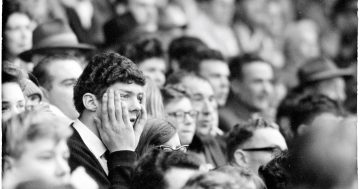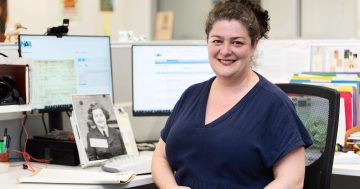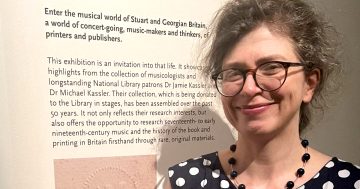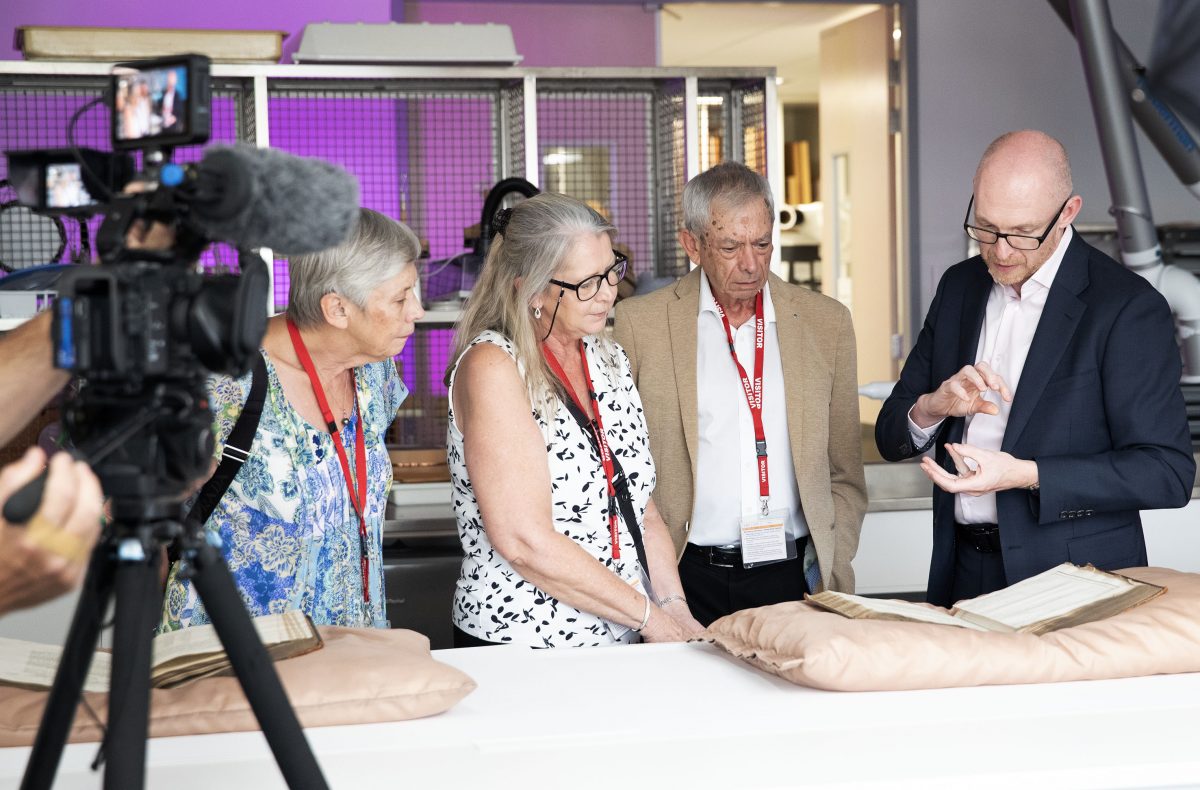
National Archives Director-General Simon Froude, right, shows philanthropist Barbara Mason and her family how the rare Flinders items will be cared for at the NAA. Photos: National Archives of Australia.
Thanks to the generosity of a philanthropist and the collecting skills of the descendants of navigator Matthew Flinders, a rare collection has found its forever home – at the National Archives of Australia (NAA) in Canberra.
The precious items belonged to British explorer and cartographer Matthew Flinders. They include a signed letter by Flinders to his sister-in-law Belle Tyler written aboard HMS Investigator on 29 April 1801 and his copy of First voyage, a three-volume set of books produced by British publisher John Hawkesworth. The books include significant explorers’ accounts of travels abroad including James Cook’s Endeavour journal. It was reportedly kept in Flinders’ library aboard the Investigator.
There was much speculation late in 2021 when the Flinders items went up for auction at Christie’s in London, with interest shown from across the globe. A Christie’s spokesperson described the collection at the time as “incredibly rare” because it contained handwritten notes by Flinders which included Indigenous words and corrections to Cook’s co-ordinates.
The books were estimated to fetch about $150,000 but ended up going under the hammer for about $740,000. The letter to Flinders’ sister-in-law also went well above the estimate of about $55,000, selling for $127,000.
The handwritten letter shows rare insight into the man who was Flinders – including a reference to a dried skeleton of a “little comical fish” collected on an earlier voyage.
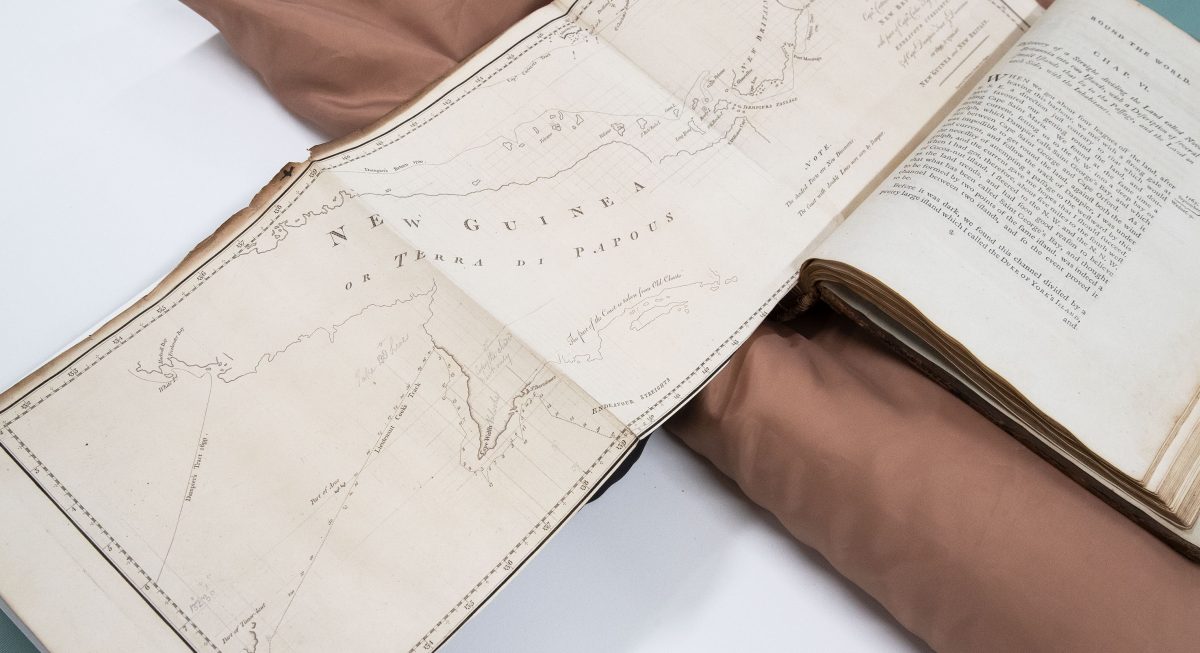
This rare map features annotations in Matthew Flinders’ own pencilled hand of his past and future travels, a document described as “incredibly rare”.
The collection was bought by philanthropist Barbara Mason and donated to the NAA. It had been in the hands of Flinders’ descendants since his death in 1814.
Director-General of the NAA Simon Froude said the arrival of the collection in Canberra marked the start of a journey to ensure the items were preserved and made accessible for future generations.
“These rare volumes almost certainly travelled with Flinders on his journey to Australia and during his circumnavigation of the continent from 1801 to 1803,” Mr Froude said.
They feature notes by Flinders correcting Cook’s geographical descriptions and contain the first written European record of the language of First Australians in King George Sound, Western Australia.
“We can clearly see he was using these books as a guide – constantly referencing Cook’s observations and noting his own travels side-by-side with Cook’s. So, what we have are two explorers, 30 years apart, surveying the same coastline.
“From the letter we get a sense of his close relationship to family, a young man starting out on his journey, sending a ‘locket of hope’ to his new sister in-law; a gentle and vulnerable gesture.”
Mr Froude thanked Ms Mason for her generous donation, saying it would be “seen as an important resource not just for the National Archives, but a resource for all Australians”.
Assistant Director-General of Collections Management at the NAA Simon Fox said the books were particularly interesting because it was clear that Flinders took them with him on his travels.
“There was such a great difference in navigational technology from when Cook went in 1770 to Flinders in 1803 – it was a massive leap. Flinders was able to update all that earlier material, correcting the longitude and latitude.
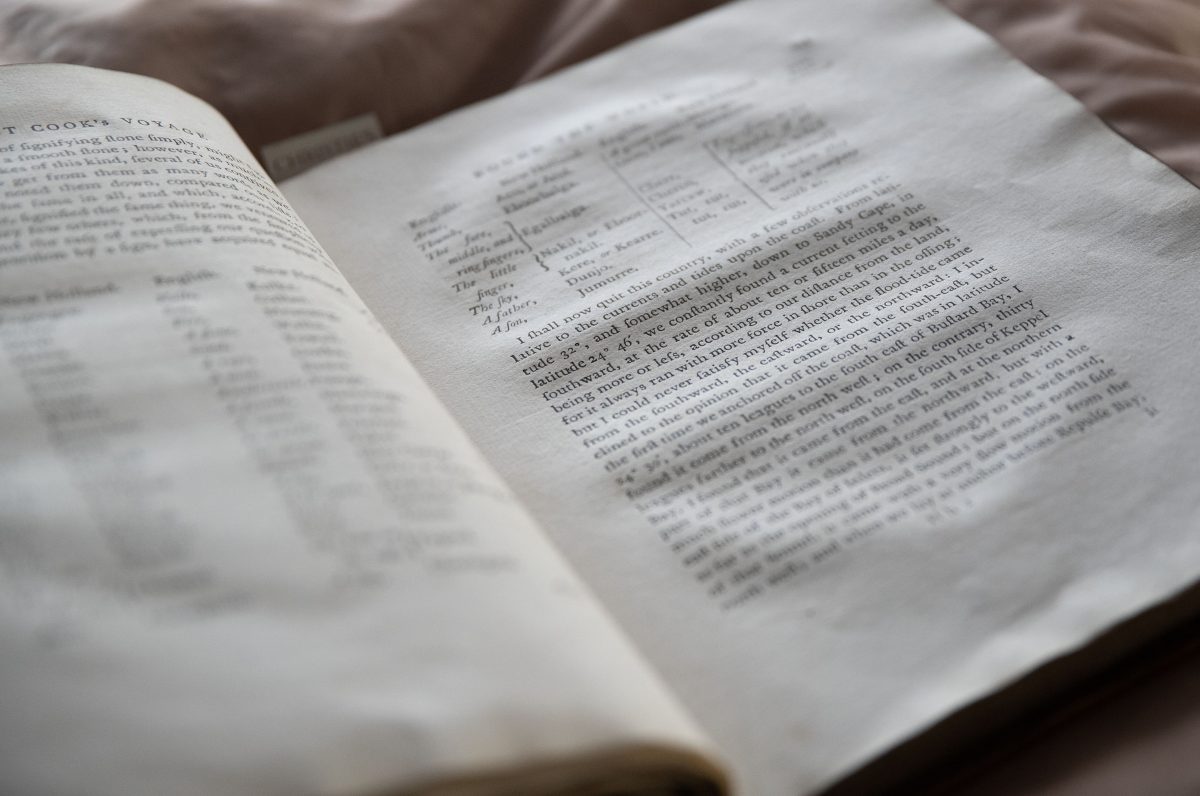
The Flinders books, although fragile, are in good condition and will undergo thorough testing by National Archives conservators before they go on public display.
“Flinders recorded all of it in his journal and that was picked up by the Australian Navy 100 years later – still accurate.”
Mr Fox said the Flinders collection brought history to life.
“If you think about the journey, he came, sailed, went around Australia then back to England and finally came back again. Yet these items are still in a good condition, although of course, very fragile.”
Mr Fox said after a thorough assessment by NAA conservators, he hoped the new Flinders collection might go on display with other Flinders and Cook material from the other leading collecting institutions.
News of the NAA donation coincides with the 248th anniversary of Flinders’ birth on 16 March in Lincolnshire, United Kingdom, and comes just a few years after his remains were rediscovered by archaeologists beneath Euston Station.













